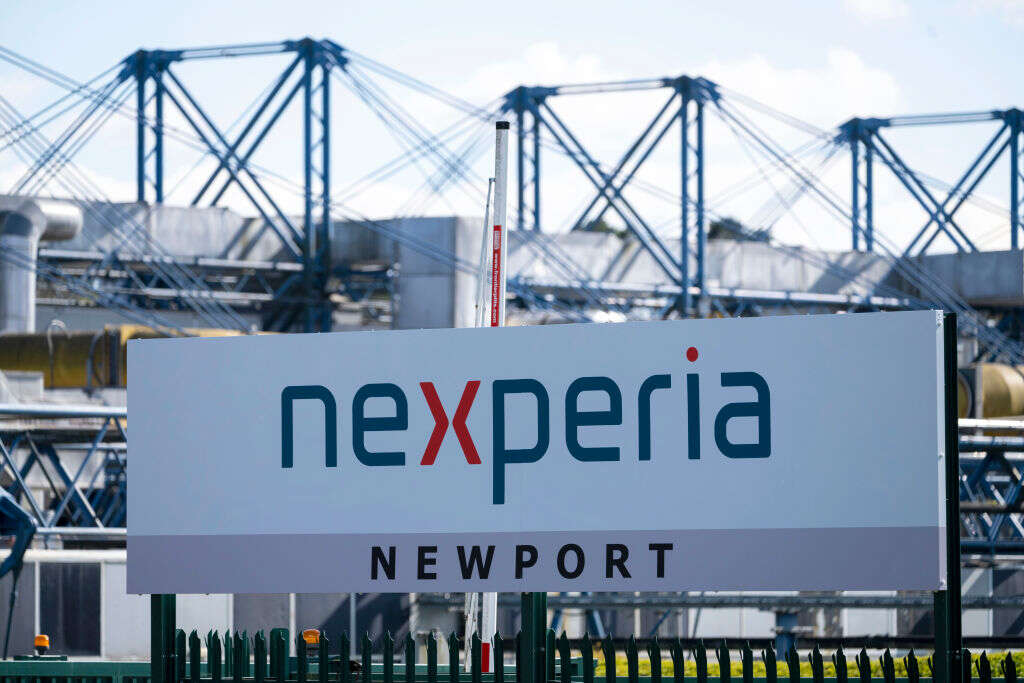
Business secretary Kwasi Kwarteng has opened a national security investigation into the takeover of Newport Wafer Fab, the UK’s largest chip manufacturing plant, by Chinese-owned Nexperia. The government has been criticised for being slow to take action on the sale, at a time when other countries are building their domestic semiconductor capabilities in the face the global chip shortage.

Kwarteng announced yesterday that the probe had been launched under the National Security and Investment Act 2021. This allows the government to scrutinise and – if necessary – intervene in qualifying acquisitions on national security grounds. “We welcome overseas investment, but it must not threaten Britain’s national security,” Kwarteng said on Twitter. The investigation will run for 30 days, and could lead to Kwarteng blocking the takeover or demanding other remedies.
Today, I called-in the acquisition of Newport Wafer Fab by Nexperia, a subsidiary of a Chinese company.
— Kwasi Kwarteng (@KwasiKwarteng) May 25, 2022
There will now be a full assessment under the new National Security and Investment Act.
We welcome overseas investment, but it must not threaten Britain’s national security.
Nexperia purchased the plant for £63m last July. The company is based in Holland, but is a subsidiary of the Chinese conglomerate Wingtech, which is partly backed by the Chinese government. Tech Monitor has approached Nexperia for comment on the news.
Is the takeover of Newport Wafer Fab a national security risk?
Founded in 1982 by British semiconductor company Inmos, Newport Wafer Fab now primarily manufactures power electronics chips used in the automotive industry, and employs around 400 people in South Wales. The factory supplies chips to the UK government, including as part of military contracts, which is what is thought to have triggered the investigation.
At the time, the government was criticised for not intervening on the sale under the National Security and Investment Act. Conservative MP Tom Tugendhat, who chairs parliament’s Foreign Affairs Committee and is part of the China Research Group of MPs, said: “The government is yet to explain why we are turning a blind eye to Britain’s largest semiconductor foundry falling into the hands of an entity from a country that has a track record of using technology to create geopolitical leverage.”
Prime Minister Boris Johnson then instructed his national security advisor, Sir Stephen Lovegrove, to look into the takeover, though the outcome of this has never been published. A report from the Foreign Affairs Committee, released last month, questioned whether the inquiry had even begun. “The Prime Minister’s assurances that work is underway are welcome,” Tugendhat said. “However, so few details have been provided to the committee, that we are left with the unfortunate conclusion that no review has taken place.”
Industry analysts who spoke to Tech Monitor were split on the strategic importance of Newport Wafer Fab. GlobalData’s Mike Orme said the takeover is “part of a long-term piecemeal approach by China to dot the world with Chinese-controlled fabs of all shapes and sizes,” adding that the site could be used to experiment with new types of chip technology.
However, John West, former managing director of VLSI Research, told Tech Monitor in July that “Newport Wafer Fab is quite small in the scheme of things, even in power semiconductors,” adding that the deal was “not a bad one” for the plant given its chequered recent ownership history.
Is the UK protecting its semiconductor industry?
The sale comes at a time when countries around the world are investing in their domestic semiconductor manufacturing capabilities in a bid to ensure they maintain a good supply of vital components. Currently the industry leans heavily on two manufacturers in the Far East – Taiwan’s TSMC and South Korea’s Samsung, particularly when it comes to advanced chips.
This week Spain became the latest country to announced domestic semiconductor investment, pledging to spend €12.25m on building chip plants as part of its Covid-19 recovery plan. This coincides with the European Union’s plan for the €43bn European Chips act, a policy designed to grow chip building capacity across the bloc. In the US, a massive bipartisan tech funding bill currently going through the House would see $52bn earmarked for US chip production.
So far the UK has yet to announce a dedicated chip industry investment package, but yesterday parliament’s Business Energy and Industrial Strategy Committee opened an inquiry looking how the country’s semiconductor sector could be developed. “The committee seeks to understand current and future demand for computer chips in the UK, the strengths and weaknesses of the UK semiconductor industry and its supply chain, and opportunities for collaboration between the United States, the European Union and other allies,” it said.






